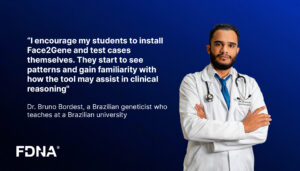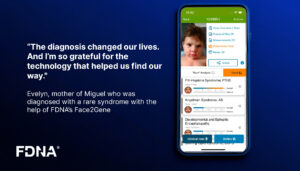05 April 2015
Manousaki D, Allanson J, Wolf L, Deal C. 2015. Characterization of facial phenotypes of children with congenital hypopituitarism and their parents: A matched case-control study. Am J Med Genet Part A167A:1525–1533.
Abstract
Congenital Hypopituitarism (CH) has traditionally been associated with specific facial phenotypes subsumed under the term midface retrusion, based on cephalometric studies. In this study, we used a systematic anthropometric approach to facial morphology in 37 individuals with CH and their parents, primarily of French Canadian ancestry, and compared them to a control group of 78 French Canadian patients with well-controlled type 1 diabetes and their parents. We were able to demonstrate clear morphological differences, which were more prevalent in the affected group than in the control group. More specifically, we showed the presence of a shorter skull base width (P < 0.001) and reduced inner canthal distance (P = 0.006) in the CH face, as well as a relative underdevelopment of the mandible (P = 0.001). These findings were present in individuals of all ages, and were independent of the duration of growth hormone treatment (median treatment 90.8 months; range 7.2–175.8 months). In addition, skull base width was significantly reduced in both mothers and fathers of affected children compared to the parents of the controls (P < 0.001), despite comparable parental heights, supporting an underlying genetic etiology. Such extensive phenotypic studies have not been done in congenital hypopituitarism and will provide further opportunities for data mining.


